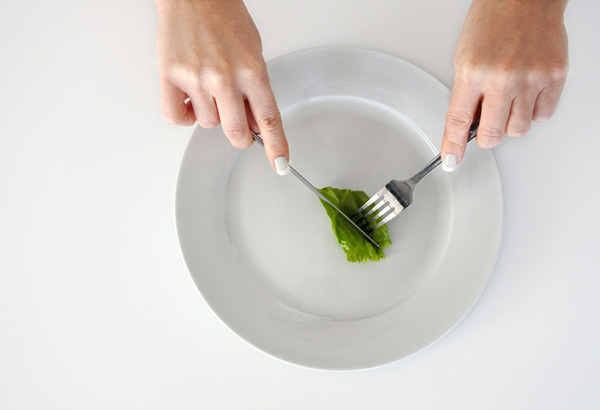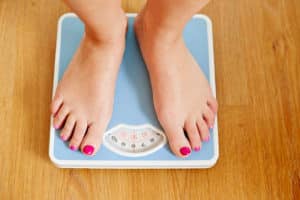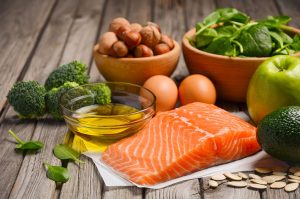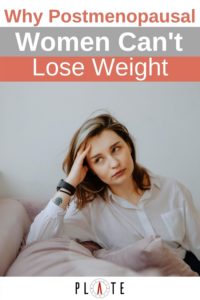
Why Postmenopausal Women Can’t Lose Weight
Since many PRiME readers are post-menopausal, this headline “why postmenopausal women can’t lose weight” has not come as a shocker to you. If your experience has been like most of us, you know first hand that losing weight and keeping it off at this stage in your life has become “mission impossible.” Sadly, by and large, all the advice out there on dieting and losing weight does not have our age group in mind. Allow me to introduce you to someone who totally understands our postmenopausal bodies, Dr. Laura Lefkowitz.
 Laura is an M.D. with honors in Obstetrics and Gynecology, Psychiatry, Internal Medicine and Radiology. It wasn’t until she was pursuing training in radiation oncology and seeing firsthand the effects of weight on women’s health, that she shifted her focus from treating disease in the traditional sense and refocused on treatment through nutrition. In preparation for her career shift, Laura attended Columbia University’s Institute for Integrative Nutrition where she studied all the various dietary theories and complimentary treatments to traditional medicine.
In other words, Dr. Laura is not just another dietician with a theory on how to lose weight. She is an expert. An expert on women our age and our bodies, she knows why postmenopausal women can’t lose weight. As she explained in PRiME’s interview with her, she approaches nutritional needs for women by life spans or cycles. First, is the birth to puberty growth stage where the body is growing and needs more calories per body weight than in any other time in life. Next comes puberty through childbearing. The body is no longer in a growth stage and needs fewer calories but the body still has fairly strong nutritional needs as the body is constantly preparing for a potential pregnancy.
Then along comes that postmenopausal stage, whatever age that is. The body stops making estrogen, the ovaries shut down since the body doesn’t need it after we stop making babies. However, as Dr. Laura explains, “Estrogen makes us feel good. It makes us pretty. It keeps our brain sharp and our skin nice. As a result, our bodies try to hang on to some of it.”
Laura is an M.D. with honors in Obstetrics and Gynecology, Psychiatry, Internal Medicine and Radiology. It wasn’t until she was pursuing training in radiation oncology and seeing firsthand the effects of weight on women’s health, that she shifted her focus from treating disease in the traditional sense and refocused on treatment through nutrition. In preparation for her career shift, Laura attended Columbia University’s Institute for Integrative Nutrition where she studied all the various dietary theories and complimentary treatments to traditional medicine.
In other words, Dr. Laura is not just another dietician with a theory on how to lose weight. She is an expert. An expert on women our age and our bodies, she knows why postmenopausal women can’t lose weight. As she explained in PRiME’s interview with her, she approaches nutritional needs for women by life spans or cycles. First, is the birth to puberty growth stage where the body is growing and needs more calories per body weight than in any other time in life. Next comes puberty through childbearing. The body is no longer in a growth stage and needs fewer calories but the body still has fairly strong nutritional needs as the body is constantly preparing for a potential pregnancy.
Then along comes that postmenopausal stage, whatever age that is. The body stops making estrogen, the ovaries shut down since the body doesn’t need it after we stop making babies. However, as Dr. Laura explains, “Estrogen makes us feel good. It makes us pretty. It keeps our brain sharp and our skin nice. As a result, our bodies try to hang on to some of it.”
 While our body can make a little estrogen in the adrenal glands, the other place we can provide it is in our peripheral fat stores. The body tries to preserve some of the estrogen by storing fat. Our insulin levels rise so we can put on weight, anywhere from five to 20 pounds. And while our blood vessels are happy, we aren’t so happy when we look in the mirror and see the extra pounds. Those extra pounds aren’t good for our hearts, either, and they are hard on our joints.
When our life expectancy was much shorter, those extra pounds weren’t as much of a problem, but now that we are living longer and want to be active into our 70s and 80s, we have to change our diet. Our bodies don’t metabolize carbohydrates well anymore. We have an overactive response to them producing insulin and storing fat. That is why it’s hard to lose weight. We have to let go of things and adapt our behavior to our hormonal system.
So it’s not about dieting. Diets ultimately fail. You have to change your relationship to food. You now need to eat the foods your body can handle if you want to keep your weight in check.
That means not eating foods that increase insulin and eating vegetables and lean protein instead. Fruit should be consumed in moderation because of its high sugar content. Milk and milk products are a problem too. Our bodies don’t need it once we stop growing. Milk is a growth hormone. So drinking lattes and such is adding needless calories.
While our body can make a little estrogen in the adrenal glands, the other place we can provide it is in our peripheral fat stores. The body tries to preserve some of the estrogen by storing fat. Our insulin levels rise so we can put on weight, anywhere from five to 20 pounds. And while our blood vessels are happy, we aren’t so happy when we look in the mirror and see the extra pounds. Those extra pounds aren’t good for our hearts, either, and they are hard on our joints.
When our life expectancy was much shorter, those extra pounds weren’t as much of a problem, but now that we are living longer and want to be active into our 70s and 80s, we have to change our diet. Our bodies don’t metabolize carbohydrates well anymore. We have an overactive response to them producing insulin and storing fat. That is why it’s hard to lose weight. We have to let go of things and adapt our behavior to our hormonal system.
So it’s not about dieting. Diets ultimately fail. You have to change your relationship to food. You now need to eat the foods your body can handle if you want to keep your weight in check.
That means not eating foods that increase insulin and eating vegetables and lean protein instead. Fruit should be consumed in moderation because of its high sugar content. Milk and milk products are a problem too. Our bodies don’t need it once we stop growing. Milk is a growth hormone. So drinking lattes and such is adding needless calories.
 While Dr. Laura designs every eating regimen for the individual, she did offer some generalizations on what your diet would need to look like in order to lose weight, postmenopausal. She recommends getting 50% of your calories from vegetables that are low in carbohydrates. Lean proteins should be roughly 25%. Healthy fats, like olive oil, avocado, etc. 15%, and that leaves only 10% for everything else–other carbs such as fruit, whole grains, oatmeal, potatoes, milk in your coffee, birthday cake and alcohol, which should only be 1% of that 10%. In other words, you can’t drink and lose weight.
Counting calories is a big waste of time. It doesn’t work. A calorie is not a calorie. You need to eat a lot of low calorie, high nutrition food, which is vegetables.
Petite women are even more challenged because they have less muscle. Bigger people are working harder against gravity and need more calories. That’s why so much of the advice out there won’t work for the petite woman, especially. Most research has been done on men and adapted to women.
When asked if yo-yo dieting slows the metabolism down, Dr. Laura said yes, but that it was not irreversible. However, we need to remember that the body is genetically wired to survive. The body doesn’t care if you look good in jeans. Losing weight scares it.
You cut your calories to 400 or 500 and your body thinks there’s an ice age out there where there’s no sunlight and thus no food available and it had better conserve energy. It’s not going to expend energy making beautiful hair and nails. Its going to focus on making blood cells and beating the heart and breathing. Cutting calories that low once in a while is fine, but over and over again, the body says, “I don’t know when the next ice age is coming so I had better start storing.”
Another reason why postmenopausal women can’t lose weight is our set point and the body adapts to it. Whatever your highest weight point is, your body thinks that’s the best weight. Remember it doesn’t know when the next ice age is coming. The hormones work against you to get back to the higher weight. For example, you weigh 125 and you gain weight – going up to 135. You diet, getting your weight back down to 125, but your body is saying, “Why are we down to 125? I liked 135.” And for the next year genetics and hormones are going to fight you as they try to get back to that 135 weight.
It is why most people gain their weight back. The body is working against them. After a year, the body finally gives up and says, “Okay, I guess this is what I’m going to weigh.” But the body will always remembers that higher weight, the exception being during pregnancy because it’s an altered state.
While Dr. Laura designs every eating regimen for the individual, she did offer some generalizations on what your diet would need to look like in order to lose weight, postmenopausal. She recommends getting 50% of your calories from vegetables that are low in carbohydrates. Lean proteins should be roughly 25%. Healthy fats, like olive oil, avocado, etc. 15%, and that leaves only 10% for everything else–other carbs such as fruit, whole grains, oatmeal, potatoes, milk in your coffee, birthday cake and alcohol, which should only be 1% of that 10%. In other words, you can’t drink and lose weight.
Counting calories is a big waste of time. It doesn’t work. A calorie is not a calorie. You need to eat a lot of low calorie, high nutrition food, which is vegetables.
Petite women are even more challenged because they have less muscle. Bigger people are working harder against gravity and need more calories. That’s why so much of the advice out there won’t work for the petite woman, especially. Most research has been done on men and adapted to women.
When asked if yo-yo dieting slows the metabolism down, Dr. Laura said yes, but that it was not irreversible. However, we need to remember that the body is genetically wired to survive. The body doesn’t care if you look good in jeans. Losing weight scares it.
You cut your calories to 400 or 500 and your body thinks there’s an ice age out there where there’s no sunlight and thus no food available and it had better conserve energy. It’s not going to expend energy making beautiful hair and nails. Its going to focus on making blood cells and beating the heart and breathing. Cutting calories that low once in a while is fine, but over and over again, the body says, “I don’t know when the next ice age is coming so I had better start storing.”
Another reason why postmenopausal women can’t lose weight is our set point and the body adapts to it. Whatever your highest weight point is, your body thinks that’s the best weight. Remember it doesn’t know when the next ice age is coming. The hormones work against you to get back to the higher weight. For example, you weigh 125 and you gain weight – going up to 135. You diet, getting your weight back down to 125, but your body is saying, “Why are we down to 125? I liked 135.” And for the next year genetics and hormones are going to fight you as they try to get back to that 135 weight.
It is why most people gain their weight back. The body is working against them. After a year, the body finally gives up and says, “Okay, I guess this is what I’m going to weigh.” But the body will always remembers that higher weight, the exception being during pregnancy because it’s an altered state.
 But Dr. Laura says it’s not hopeless. If you can feed your body regularly with lots of vegetables and lean protein, you can calm down those hormones and get your metabolism working properly again. It won’t be what it once was due to age and loss of muscle mass, but it can be functioning properly. Extreme dieting also reduces muscle mass which makes you burn less fat, so if you don’t work at building that muscle back, you won’t get your metabolism back.
Your body also thinks about the future. As you get older, the body starts worrying about coming health issues. The body says, “I might need surgery and I had better have a little fat stored away. I need some pounds.” So the five pounds you gained at menopause, your body wants to put that into a piggy bank. It’s a retirement fund.
Your body also doesn’t regulate its temperature as well and a little extra weight is like a sweater to throw on when you’re wearing a tank top. A little bit of insulation keeps the organs warmer. So while 20 pounds is too much extra weight for most women, five to ten pounds may be a very good thing.
The reason postmenopausal women can’t lose weight isn’t any one thing, but with changing the way we eat, exercising more, and being patient, we can maintain a healthy weight.
The post Why Postmenopausal Women Can’t Lose Weight appeared first on Prime Women | An Online Magazine.
But Dr. Laura says it’s not hopeless. If you can feed your body regularly with lots of vegetables and lean protein, you can calm down those hormones and get your metabolism working properly again. It won’t be what it once was due to age and loss of muscle mass, but it can be functioning properly. Extreme dieting also reduces muscle mass which makes you burn less fat, so if you don’t work at building that muscle back, you won’t get your metabolism back.
Your body also thinks about the future. As you get older, the body starts worrying about coming health issues. The body says, “I might need surgery and I had better have a little fat stored away. I need some pounds.” So the five pounds you gained at menopause, your body wants to put that into a piggy bank. It’s a retirement fund.
Your body also doesn’t regulate its temperature as well and a little extra weight is like a sweater to throw on when you’re wearing a tank top. A little bit of insulation keeps the organs warmer. So while 20 pounds is too much extra weight for most women, five to ten pounds may be a very good thing.
The reason postmenopausal women can’t lose weight isn’t any one thing, but with changing the way we eat, exercising more, and being patient, we can maintain a healthy weight.
The post Why Postmenopausal Women Can’t Lose Weight appeared first on Prime Women | An Online Magazine.

